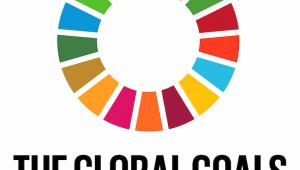The 17 goals, with their ambitious 169 targets to be met by 2030, are expected to cost at least $1tn per year to achieve, although some estimate the cost will run to more than double that.
Outgoing UN secretary general Ban Ki-Moon announced that the organisation, in collaboration with the private sector, would launch a new partnership platform to generate financial solutions. He was speaking earlier this week at a meeting between global treasury and foreign affairs officials and the leaders of global financial institutions.
“This global initiative can support the identification and piloting of innovative financial instruments that can drive investment and support well thought-out SDG interventions,” he explained.
“As well as launching innovative financial solutions, the platform would engage key development actors, including governments, civil society, philanthropic organisations, entrepreneurs, institutional investors, banks, project developers and development finance institutions.”
The focus will be on actions and SDG interventions, ensuring that financing is delivered to the places and people who need it the most, the UN said.
The concept of a multi-stakeholder platform to finance the goals was first introduced at the 2015 Financing for Development Conference in Addis Ababa, Ethiopia.
World leaders called for creative solutions from the private sector, to scale up sustainable investments.
As the demand among shareholders grows, the new framework aims to provide the necessary know how to facilitate sustainable investments, accelerating solutions and encouraging scale-ups.
Since 2015, a number of new financial ideas have already come to the fore. The UN highlighted how International Housing Solutions, a global private equity investor, is using both catalytic and commercial capital investors to make green homes affordable in sub-Saharan Africa.
Chief executive Michael Falcone said the creation of a UN platform would help his firm expand the venture.
Judith Rodin, president of The Rockerfeller Foundation, agreed that to realise the SDGs “we need to foster a new era of collaboration and coordination”.
“The UN secretary general has unprecedented convening power to do this by bringing together leaders from different sectors,” he said.
“While there are many pathways to achieve the SDGs, one thing is clear: business as usual is not an option to close the funding gap.”













